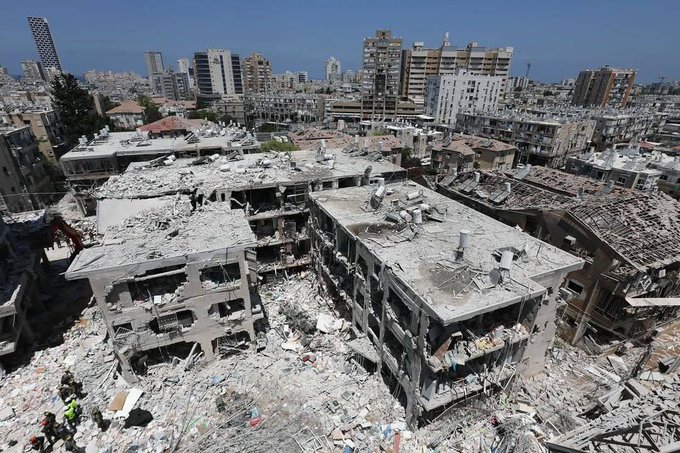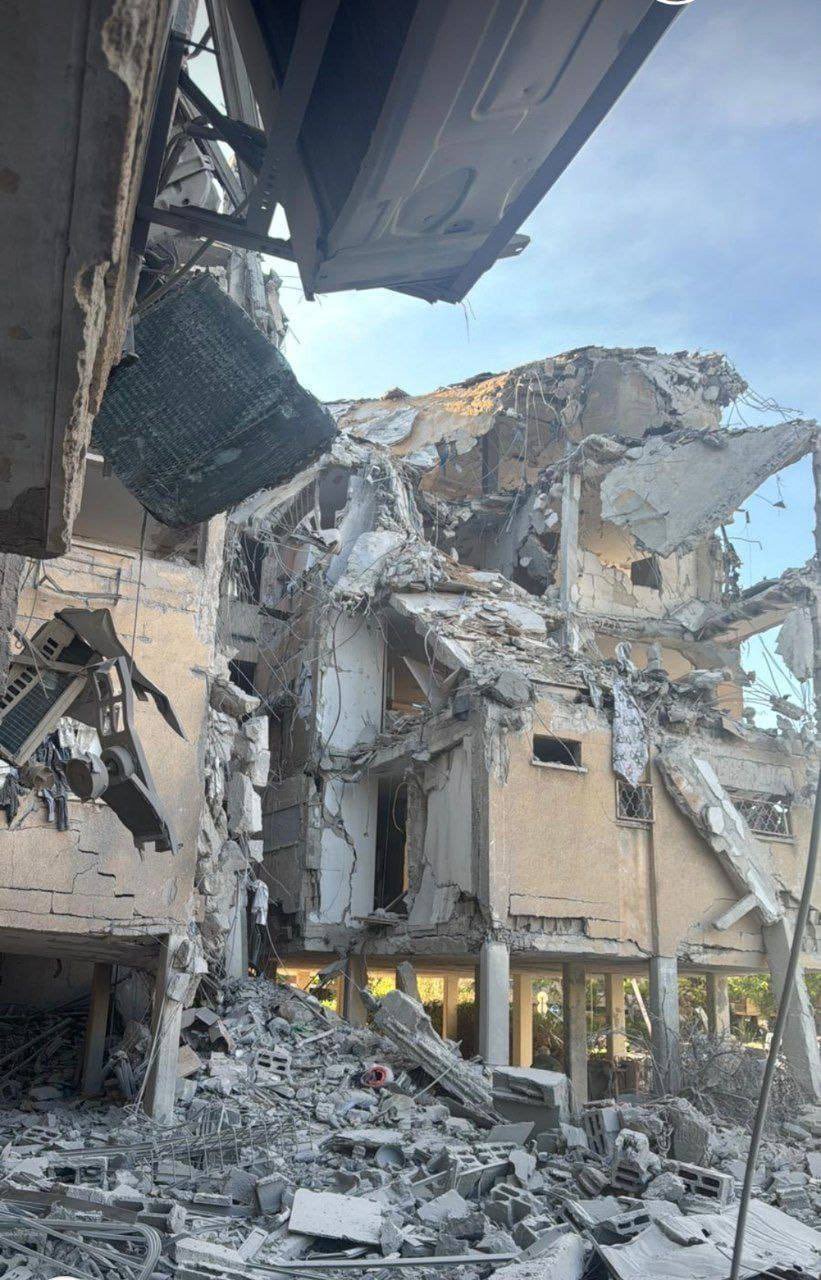Iran has reportedly fired a missile carrying cluster munitions into central Israel amid escalating hostilities between the two countries, in what the Israeli military has described as an attempt to inflict maximum civilian harm. This marks the first known use of such munitions in the ongoing eight-day conflict.
According to the Israeli military, the missile’s warhead dispersed approximately 20 submunitions across a wide area after detonating at an altitude of around 7 km. The munitions were spread over an 8-km radius in central Israel, with one of them striking a residence in the town of Azor, causing property damage but no casualties. The authorities did not release further details regarding the nature of the missile or its origin.


Cluster bombs are widely condemned for their indiscriminate impact. Their submunitions often fail to detonate upon impact, posing a lingering threat to civilians long after hostilities cease.
In a statement released during a briefing, Brigadier General Effie Defrin, spokesperson for the Israeli military, remarked: “The terror regime seeks to harm civilians and even used weapons with wide dispersal in order to maximise the scope of the damage.”
To warn the public, the Israeli Defence Forces issued a visual advisory outlining the potential dangers posed by unexploded submunitions in affected areas.
Also read: Iran hits Israel's top research facility, scientists mourn loss
Iran’s mission to the United Nations and Israel’s embassy in Washington did not immediately respond to requests for comment on the reported use of cluster munitions.
Daryl Kimball, executive director of the Arms Control Association, condemned the alleged use of such weapons in civilian areas. “They are egregious weapons with their wide-area destruction, especially if used in a civilian populated area and could add to the unexploded ordnance left over from conflicts,” he said.
Referring to the known limitations of Iranian missile accuracy, Kimball added, “They are going to hit civilian targets rather than military targets.”
Neither Iran nor Israel is a signatory to the 2008 Convention on Cluster Munitions, an international treaty prohibiting the production, stockpiling, transfer, and use of cluster bombs. The agreement has been signed by 111 countries and 12 other entities.
Despite international concern, some nations continue to deploy these controversial weapons. In 2023, the United States controversially supplied Ukraine with cluster munitions for its defence against Russian forces. Kyiv has since claimed Russian troops have also employed them on the battlefield.



